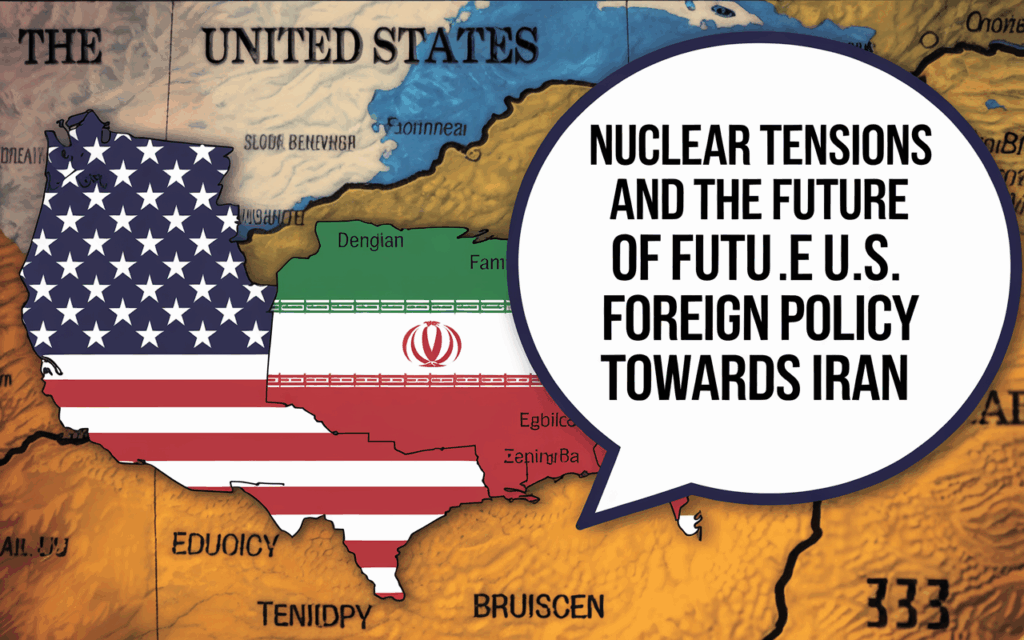Nuclear Fears: A Call for Regime Change in Iran? 🌍💥
In a world where global tensions can escalate in the blink of an eye, the current situation involving Iran raises urgent questions about military action and international diplomacy. The latest developments, as discussed in Mac William Bishop's article on Rolling Stone, have stirred the pot for a potential clash that could reshape the Middle East and our understanding of nuclear diplomacy.
Iran's nuclear ambitions have long been a concern on the international stage. Recently, as Israel intensifies its military operations against Iran, the narrative morphs from benign negotiations to a heated call for Iran's regime change. 🕊️🇮🇱 The stakes have never been higher, with U.S. President Donald Trump faced with pressure from hawks in both the U.S. and Israeli governments to take decisive action.
The Escalating Tensions 🔥
Following Israel's military strikes meant to curb Iran's nuclear capabilities, Trump has adopted a more aggressive stance, demanding “unconditional surrender” from Iran. But is this the best approach? His options, reportedly weighing the use of deep-penetration munitions, have sparked considerable debate about the effectiveness of military intervention versus diplomatic dialogue.
It is crucial to note that while Iran's pursuit of nuclear weaponry is alarming, experts like Dr. Nicole Grajewski emphasize that the technical barriers to weaponization are non-trivial. Iran remains a signatory of the Nuclear Non-Proliferation Treaty, complicating simplistic narratives of imminent threat. Furthermore, as the International Atomic Energy Agency (IAEA) underscored, evidence of an active weaponization program is lacking. 🔍⚖️
Mixed Opinions and Uneasy Alliances 🤝⚔️
Internal divisions among U.S. officials reflect the complex landscape of American foreign policy. While hawkish sentiments push for a hardline approach, others advocate for a restrained strategy, wary of the profound consequences of military engagement. The formula for peace remains elusive, and the American public shows skepticism towards renewed military ventures after years of tumultuous involvement in the Middle East.
As Bishop points out, the concept of "regime change" resonates uneasily with the populace, bringing back memories of past invasions and the long-lasting chaos that ensued. Public opinion plays a pivotal role here, and many have voiced concerns that any military strike will not extinguish Iran's ambitions but could instead ignite broader conflict in the region. 📉📢
The Path Forward: Diplomacy or Destruction? 🧭💣
Interestingly, while military intervention remains a tempting option, the voices advocating for diplomacy argue for the necessity of dialogue. Iran’s foreign minister has publicly stated their readiness for negotiations—if aggression ceases. Thus, there is a path available that could thwart hostilities without engaging in another armed conflict.
The challenge lies in the balance of power and the willingness from both sides to compromise. Can the U.S. and its allies position themselves as facilitators of peace rather than warriors of a conflict-laden regime change? The moment is crucial, and realigning focus towards negotiation might bear more fruit than ever-increasing military efforts.
Conclusion: A Tenuous Balance ⚖️
As we stand at this decision point, the looming potential for military action against Iran requires sober consideration of the implications that accompany such drastic moves. Has the world learned from its past mistakes? Engaging thoughtfully with the complexities of Iranian politics and its nuclear aspirations might be the key to turning tensions into negotiations.
Let's stay tuned to see how this situation unfolds. It could determine not just the fate of a nation but the nature of U.S. foreign policy in one of the most volatile regions on the planet. 🌏
What are your thoughts on the current strategy towards Iran? Should the U.S. support Israel in its military objectives, or is it time for a renewed focus on diplomacy? Drop your comments below! 💬🗣️
#IranNuclear #RegimeChange #DiplomacyOverWar #MiddleEastTensions #GlobalPolitics

More Stories
Exciting News: The Summer I Turned Pretty is Becoming a Movie
Reflecting on Robert Redford’s Legacy of Integrity and Artistry
Sara Rivers Appeals Dismissal of $60 Million Lawsuit Against Sean Combs: A Fight for Justice in the Entertainment Industry